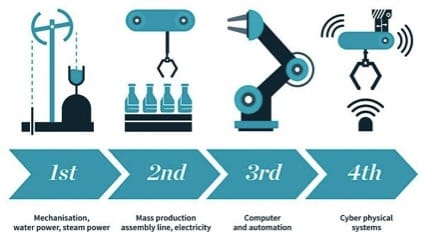GERMANY – Among the piazzas, which are special topic-specific displays at Interzum 2019, digitalization, often referred to as the fourth industrial revolution, will be on the spotlight.
 The effects of digitalization are evident in consumers’ living spaces. These effects range from the digitalization of the furniture industry and the new experiences on offer when choosing and buying interior fittings, right through to innovative business models. With its new ‘Digitalization: Focus on Consumer Trends!’, Interzum 2019 explores various ways that this megatrend is having an impact on living environments.
The effects of digitalization are evident in consumers’ living spaces. These effects range from the digitalization of the furniture industry and the new experiences on offer when choosing and buying interior fittings, right through to innovative business models. With its new ‘Digitalization: Focus on Consumer Trends!’, Interzum 2019 explores various ways that this megatrend is having an impact on living environments.
The practical, forward-looking examples presented at the piazza will provide manufacturers and fitters with new ideas to work with. Experts and manufacturers will be on hand to answer key questions about the fourth industrial revolution. Questions such as, “How can digitalization help to satisfy consumer requirements for furniture production and interior design?” And what role do the products and solutions of Interzum exhibitors play here?
“Digitalization is one of the key issues of our time,” says Maik Fischer, Director of Interzum. “So it goes without saying that we are devoting more attention to this trend. At this piazza, we are seeking to provide a combination of promising ideas and examples of best practice. We are not presenting digitalization as an end in itself. It is a tool that makes it possible to cater for customer requirements more effectively,” Maik Fischer explains.
The special exhibition uses three areas, each representing a global consumer sub-trend, to show interior designers, furniture manufacturers and retailers how they can fulfill customer requirements.
The first area focuses on conscious, sustainable living. The topics here include consumer expectations of solutions for smaller living spaces, furniture hire and sharing models for living areas and workspaces, as well as sustainable production, utilization and recycling.
A trend that has been challenging the furniture industry for some time is consumer demand for the individualization of living spaces and the personalization of furniture. In this respect, digitalization is opening up a new level of freedom in terms of design options. The key aspects of this sub-trend are modular furniture concepts, sensors for individualized products and new experiences for the processes of choosing and producing furnishings.
The third sub-trend addresses digitalization in the context of furniture and accessories. For some time now, robots have been performing routine domestic tasks such as vacuum cleaning and mowing the lawn. Sensors and smart home technology can control a range of functions within the home in order to save energy, improve security and make life easier. Sensors and data that is processed using artificial intelligence can be used in order to offer custom solutions for the home environment.

0 Comments